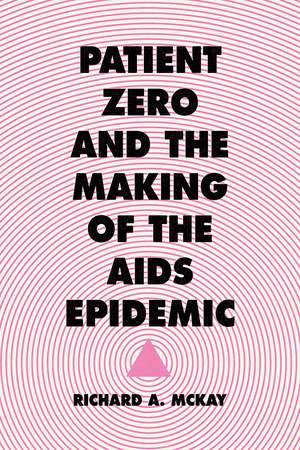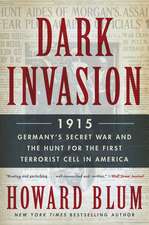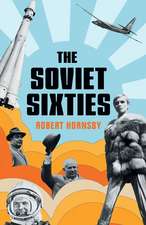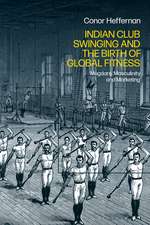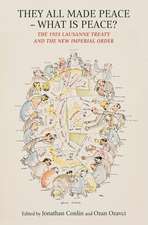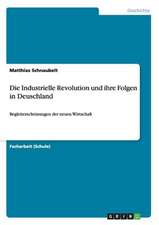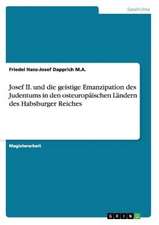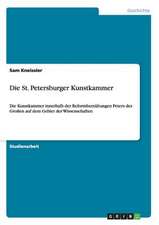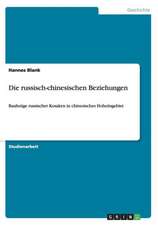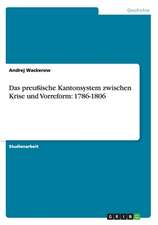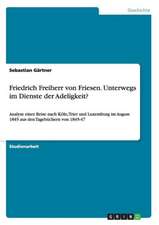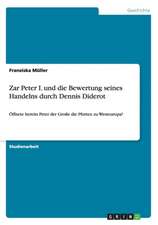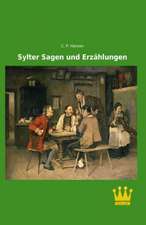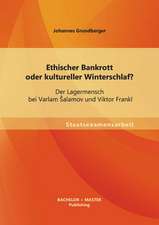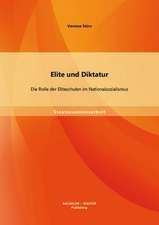Patient Zero and the Making of the AIDS Epidemic
Autor Richard A. McKayen Limba Engleză Paperback – 22 noi 2017
Now an award-winning documentary feature film
The search for a “patient zero”—popularly understood to be the first person infected in an epidemic—has been key to media coverage of major infectious disease outbreaks for more than three decades. Yet the term itself did not exist before the emergence of the HIV/AIDS epidemic in the 1980s. How did this idea so swiftly come to exert such a strong grip on the scientific, media, and popular consciousness? In Patient Zero, Richard A. McKay interprets a wealth of archival sources and interviews to demonstrate how this seemingly new concept drew upon centuries-old ideas—and fears—about contagion and social disorder.
McKay presents a carefully documented and sensitively written account of the life of Gaétan Dugas, a gay man whose skin cancer diagnosis in 1980 took on very different meanings as the HIV/AIDS epidemic developed—and who received widespread posthumous infamy when he was incorrectly identified as patient zero of the North American outbreak. McKay shows how investigators from the US Centers for Disease Control inadvertently created the term amid their early research into the emerging health crisis; how an ambitious journalist dramatically amplified the idea in his determination to reframe national debates about AIDS; and how many individuals grappled with the notion of patient zero—adopting, challenging and redirecting its powerful meanings—as they tried to make sense of and respond to the first fifteen years of an unfolding epidemic. With important insights for our interconnected age, Patient Zero untangles the complex process by which individuals and groups create meaning and allocate blame when faced with new disease threats. What McKay gives us here is myth-smashing revisionist history at its best.
The search for a “patient zero”—popularly understood to be the first person infected in an epidemic—has been key to media coverage of major infectious disease outbreaks for more than three decades. Yet the term itself did not exist before the emergence of the HIV/AIDS epidemic in the 1980s. How did this idea so swiftly come to exert such a strong grip on the scientific, media, and popular consciousness? In Patient Zero, Richard A. McKay interprets a wealth of archival sources and interviews to demonstrate how this seemingly new concept drew upon centuries-old ideas—and fears—about contagion and social disorder.
McKay presents a carefully documented and sensitively written account of the life of Gaétan Dugas, a gay man whose skin cancer diagnosis in 1980 took on very different meanings as the HIV/AIDS epidemic developed—and who received widespread posthumous infamy when he was incorrectly identified as patient zero of the North American outbreak. McKay shows how investigators from the US Centers for Disease Control inadvertently created the term amid their early research into the emerging health crisis; how an ambitious journalist dramatically amplified the idea in his determination to reframe national debates about AIDS; and how many individuals grappled with the notion of patient zero—adopting, challenging and redirecting its powerful meanings—as they tried to make sense of and respond to the first fifteen years of an unfolding epidemic. With important insights for our interconnected age, Patient Zero untangles the complex process by which individuals and groups create meaning and allocate blame when faced with new disease threats. What McKay gives us here is myth-smashing revisionist history at its best.
Preț: 292.33 lei
Nou
Puncte Express: 438
Preț estimativ în valută:
55.94€ • 59.82$ • 46.64£
55.94€ • 59.82$ • 46.64£
Carte tipărită la comandă
Livrare economică 18 aprilie-02 mai
Preluare comenzi: 021 569.72.76
Specificații
ISBN-13: 9780226063959
ISBN-10: 022606395X
Pagini: 400
Ilustrații: 23 halftones, 8 line drawings, 2 tables
Dimensiuni: 152 x 229 x 28 mm
Greutate: 0.61 kg
Ediția:1
Editura: University of Chicago Press
Colecția University of Chicago Press
ISBN-10: 022606395X
Pagini: 400
Ilustrații: 23 halftones, 8 line drawings, 2 tables
Dimensiuni: 152 x 229 x 28 mm
Greutate: 0.61 kg
Ediția:1
Editura: University of Chicago Press
Colecția University of Chicago Press
Notă biografică
Richard A. McKay is a Wellcome Trust Research Fellow in the Department of History and Philosophy of Science at the University of Cambridge.
Cuprins
Acknowledgments
List of Abbreviations
0. Introduction: “He Is Still Out There”
1. What Came Before Zero?
2. The Cluster Study
3. “Humanizing This Disease”
4. Giving a Face to the Epidemic
5. Ghosts and Blood
6. Locating Gaétan Dugas’s Views
Epilogue: Zero Hour—Making Histories of the North American AIDS Epidemic
Appendix: Oral History Interviews
Bibliography
Index
List of Abbreviations
0. Introduction: “He Is Still Out There”
1. What Came Before Zero?
2. The Cluster Study
3. “Humanizing This Disease”
4. Giving a Face to the Epidemic
5. Ghosts and Blood
6. Locating Gaétan Dugas’s Views
Epilogue: Zero Hour—Making Histories of the North American AIDS Epidemic
Appendix: Oral History Interviews
Bibliography
Index
Recenzii
“The truth takes a long time coming. Patient Zero and the Making of the AIDS Epidemic is a counterpart to David France's award-winning How To Survive A Plague (2016), which managed for the social, epidemiological side of HIV/AIDS what Richard McKay now delivers for the personal, biomedical story. He is to be applauded for writing a first book of such urgency, acuity and intelligence.”
Outstanding Academic Title, 2018
“McKay’s arguments provide valuable insight into what was not said or done during this fragile period. In this way, his book serves as a reminder that there can be many facets of the same truth. . . It provides a unique account of how the concept of “patient zero” came into being, influenced a generation, and became a part of our shared lexicon.”
“McKay examines the personal story of Dugas to reveal a complex person, not the simplistic Patient Zero monster who brought the disease to America. McKay is particularly good at tying Dugas’s life story to Canadian AIDS history. . . . At a time when it is both easy and expedient to blame “the other” for complex social ills, McKay has written an important cautionary tale of the consequences of such behavior.”
“An authoritative, corrective resource on the early history of the AIDS epidemic. . .McKay successfully corrects the record regarding the so-called “patient zero”. . .McKay also humanizes Dugas by presenting the perspectives of his friends, colleagues, former lover, healthcare providers, and others. . . .Highly recommended.”
“Surprisingly readable for a book of such cool, acute analysis, its most eye-opening sections include an empathetic look at the life and personal perspectives of Gaétan Dugas, the French-Canadian flight attendant who was vilified and villainized as Patient Zero in the popular press. . .McKay not only dismantles this atomic bomb of fake news, but explores the way it distorted and distracted from rational approaches to the spread of the virus.”
“It’s time to take a brand new look at the story defining the first years of the AIDS epidemic, and to tell that story from another perspective. . .That’s what Richard A. McKay, a Wellcome Trust Research Fellow in the Department of History and Philosophy of Science at the University of Cambridge, attempts to do in his debut book Patient Zero and the Making of the AIDS Epidemic. . .Thoroughly researched, McKay’s Patient Zero sheds more light on who Gaétan Dugas was and explains the confusion that led the words “Patient Zero” to be attributed to Dugas.”
“How do myths come into being? Why do some myths fade away whereas others become part of history? What roles do myths play in our understandings of the past and our attempts at making the present comprehensible? These questions lie at the heart of Richard A. McKay´s wonderful book Patient Zero and the Making of the AIDS Epidemic. . .McKay brilliantly discloses how the questions of responsibility, moral and how to have sex in an epidemic were negotiated in the early years of the AIDS epidemic. . .One of the book’s biggest achievements is that we are constantly reminded–by its approach to historical material, integrating archival material, newspaper articles, oral history interviews, art and media material–how representations of the past (truths, tales, or myths) have their own history which continues to live in the present.”
“After a decade of meticulous, painstaking research, McKay unravels the media and medical discourses that created the ultimate twentieth-century super-villain. With admirable precision, he offers by contrast a dynamic new history of the early AIDS crisis in North America, superbly contextualized. With ethical urgency, he fashions a trustworthy, inspiring biography of Gaétan Dugas, demanding sophisticated moral reflection.”
“A viscerally evocative and powerfully consequential study of the fear, stigma, and scapegoating pervasive in the early years of AIDS in North America. Deftly weaving together cultural, medical, and political history, McKay has given us a beautifully written study that integrates the experiences and attitudes of gay men with those of CDC epidemiologists, physicians and nurses on front lines, historians, and journalists. His pointed analysis of the shocking allure of seeking individuals who were supposedly deliberately spreading the disease will linger with every reader.”
“The AIDS epidemic is far from over, and it is crucial that we understand both the history and the myths of AIDS. As a real detective, McKay meticulously analyzes the early days of what has become the largest pandemic in modern times, unraveling the myth of one man triggering the epidemic in North America. This well written book is a must read for historians, practitioners, and activists.”
"McKay’s is an impressively researched, thoughtful, and lucidly written book....[T]his remarkable book should be of considerable value to students of the early AIDS epidemic and of historians interested in how societies use historical fears, denial, social prejudice, and metaphors to characterize those they wish to vilify or destroy during perceived crises."
"McKay has done historians of medicine a tremendous service by providing a nuanced and representative view of Gaetan Dugas."
"A compelling and thought-provoking analysis...McKay compiles an abundance of archival sources and informative oral history inter-views to provide strong evidence for his arguments. Historians, social scientists, and health scientists studying diseases and public health will likely be interested in this book."
